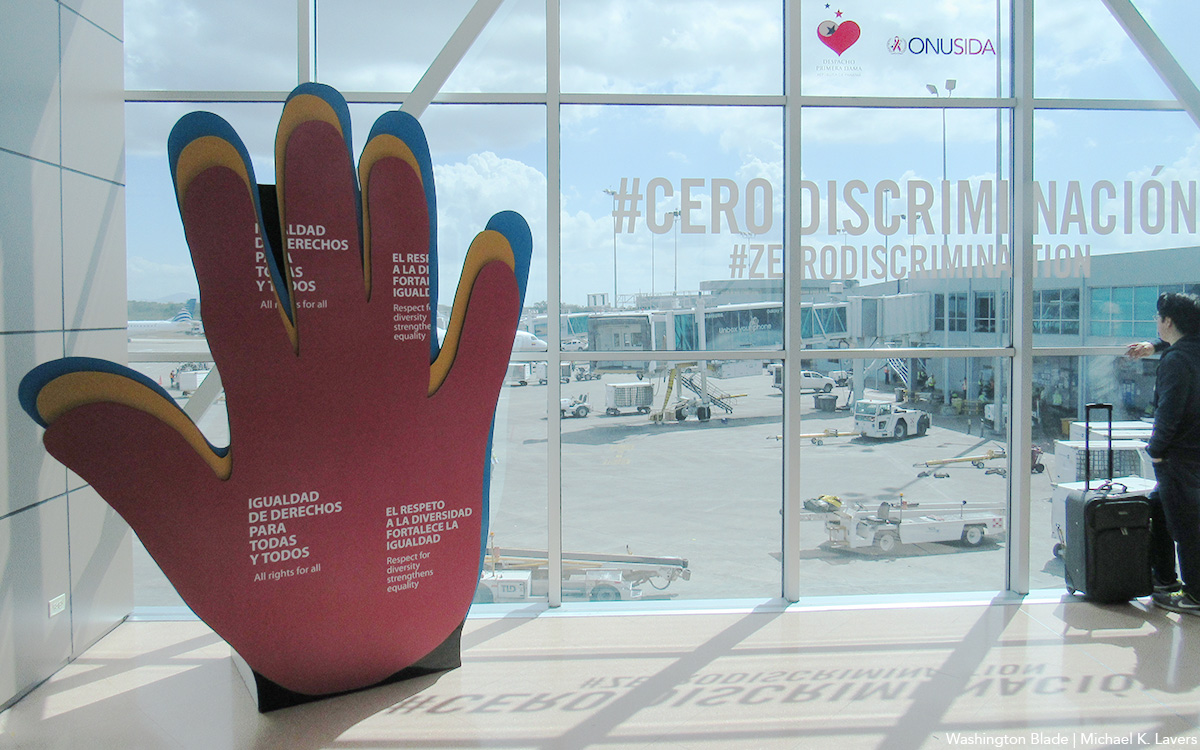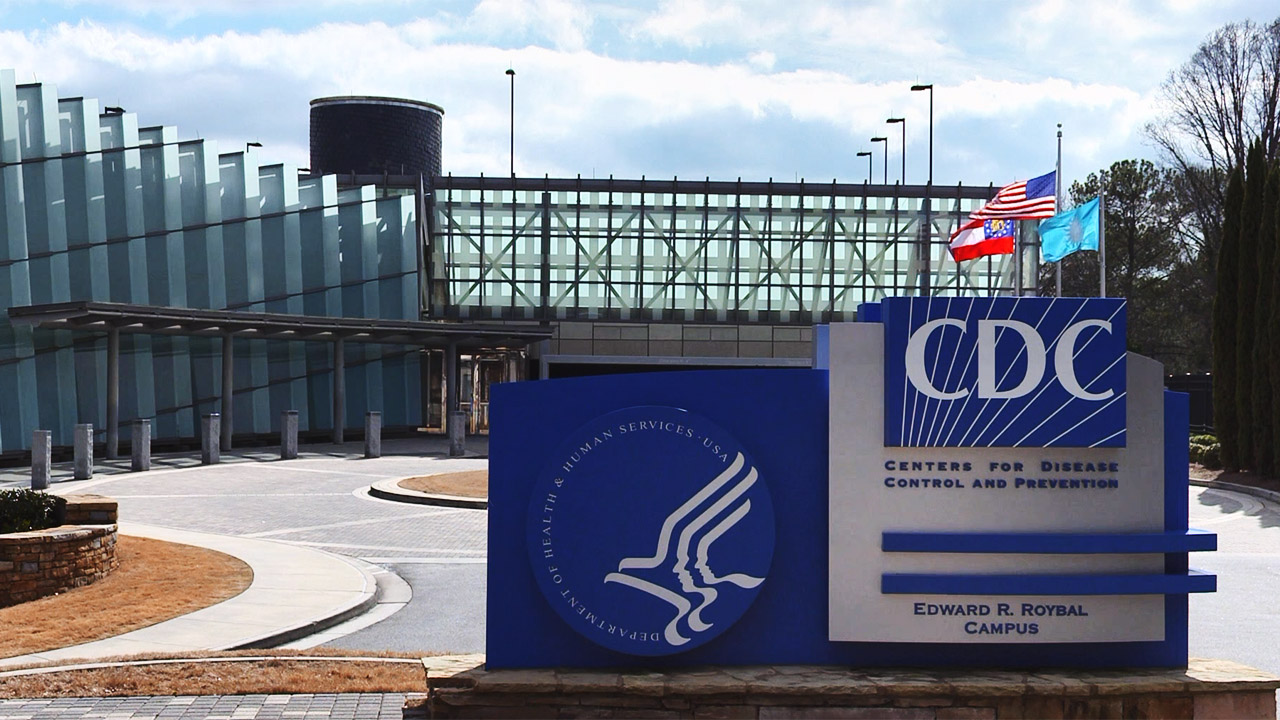Health
D.C. hospital offers expedited HIV testing
Patients can learn status within two weeks of contracting virus


Dr. Lisa Fitzpatrick of the Infectious Disease Care Center at United Medical Center in Southeast D.C. (Photo courtesy of Dr. Lisa Fitzpatrick)
A Southeast Washington hospital has begun to offer its patients a test that allows them to know their HIV status within two weeks of contracting the virus.
United Medical Center last month began offering expedited testing to its patients after securing a grant from Gilead Sciences’ HIV Focus Program that allowed it to install a machine to conduct the early screenings. The biotechnology company has also partnered with Whitman-Walker Health, Providence Hospital, Unity Health Care and Family and Medical Counseling Services through the D.C. Human Service Administration to further expand HIV testing in the nation’s capital.
“It’s our best chance of arresting infection, reducing transmission and preserving people’s immune function,” Dr. Lisa Fitzpatrick, medical director for United Medical Center’s Infectious Diseases Care Center, told the Washington Blade during a Dec. 12 interview. “The problem with finding them early though is making sure the technology is accessible to people so we can identify them early.”
Fitzpatrick noted to the Blade those with HIV can have as many as 2 million copies of the virus when they first become infected because it replicates “out of control.” People living with HIV typically have 200,000 copies of the virus or less when they test positive.
Traditional HIV screenings — blood tests and rapid tests — only detect HIV antibodies two to three months after infection. A person who gets tested before that window will see a negative result.
“If you feel fine for up to three months, you could still be having sex with people but you’re really infectious,” said Fitzpatrick. “You don’t even know it.”
Fitzpatrick added the machine has already detected three people with early infection and high viral loads since United Medical Center installed it.
“Imagine if we had a broad enough campaign where people knew about it and they knew that they were in a position where they could have placed themselves at risk,” she said. “They can come and see us if they have those flu-like symptoms.”
A 26-year-old gay Southeast D.C. man who asked the Blade to remain anonymous tested positive for HIV at United Medical Center on Dec. 1.
He said he had what he described as flu-like symptoms for about a week before he learned his status on World AIDS Day, which is also his birthday. The man told the Blade he feels he became infected at some point in late October.
“I was a little surprised because I had just tested negative,” he said during an interview at United Medical Center after he met with Fitzpatrick. “I knew it was a possibility because of the type of sex that I had engaged in.”
The D.C. Department of Health’s HIV/AIDS, Hepatitis, Sexually Transmitted Disease and Tuberculosis Administration’s annual epidemiology report shows 15,056 people in the nation’s capital – or 2.4 percent of Washingtonians – were living with HIV at the end of 2011. 5.4 percent of black men in D.C. had the virus during the same period, compared to only 1.1 percent of white men in Washington.
Men who have sex with men and heterosexual contact were the two leading modes of transmission among newly diagnosed HIV cases, but the report found they decreased 46 percent from 2007.
Nearly a quarter of MSM who took part in a study the D.C. Department of Health released in September said they were previously unaware of their status. HIV rates were higher among men of color, but the study found they were more likely to use condoms with male partners than white men.
80 percent of D.C. residents who learned they were living with the virus in 2011 were linked to care within three months of their diagnosis.
“Given the complexity and the severe consequences of a condition like AIDS, for us to say that 30 years later we have made the enormous progress that we have made is absolutely phenomenal,” said D.C. Mayor Vincent Gray in October during the 27th annual AIDS Walk Washington.
Fitzpatrick’s patient with whom the Blade spoke on Dec. 12 said he has received health insurance, medications and other information about HIV since he learned his status.
“I’m a person living with HIV now,” he said. “I plan to keep taking my medicines, stay on my regiment, get my viral load down, become undetectable and live what we consider a normal life. I’m looking forward to all of that.”
Fitzpatrick added early HIV testing and immediately linking those who test positive into care remains an essential element to combating the epidemic.
“HIV needs to get integrated into our conversations about health and wellness and chronic diseases,” she told the Blade. “We still have so much to do.”
Health
UNAIDS to commemorate Zero Discrimination Day’s 10th anniversary
UN agency urges global action to protect human rights

As the world marks the 10th anniversary of Zero Discrimination Day; UNAIDS is sounding the alarm on the increasing threats to human rights, calling for renewed efforts to protect the rights of all individuals as a fundamental step towards ensuring health for everyone.
Established by UNAIDS a decade ago, Zero Discrimination Day aims to promote equality and fairness regardless of gender, age, sexuality, ethnicity or HIV status. The progress achieved over the past years is now in jeopardy, however, due to rising attacks on the rights of women, LGBTQ people and other marginalized communities.
UNAIDS Executive Director Winnie Byanyima emphasized the critical link between protecting human rights and safeguarding public health.
“The attacks on rights are a threat to freedom and democracy and are harmful to health,” she said in a press release. “Stigma and discrimination obstruct HIV prevention, testing, treatment and care and hold back progress towards ending AIDS by 2030. It is only by protecting everyone’s rights that we can protect everyone’s health.”
Despite challenges, there has been notable progress.
At the onset of the AIDS pandemic more than 40 years ago, two-thirds of countries criminalized consensual same-sex sexual relations. They are now decriminalized in two-thirds of countries. An additional 38 countries around the world have pledged to end HIV-related stigma and discrimination, contributing to positive changes that include 50 million more girls attending school compared to 2015.
To sustain and enhance these advancements; UNAIDS urges global support for women’s rights movements, LGBTQ rights, racial justice, economic justice, climate justice and peace initiatives. By standing with communities advocating for their rights, the U.N. aims to reinforce the collective effort towards a more inclusive and equitable world.
Zero Discrimination Day is observed on March 1.
Events and activities that will take place around the world throughout the month will serve as reminders of the essential lesson and call to action: Protecting everyone’s health is synonymous with protecting everyone’s rights.
“Through upholding rights for all, we will be able to achieve the Sustainable Development Goals and secure a safer, fairer, kinder and happier world — for everyone,” said Byanyima.
Health
New CDC report finds transgender women at higher risk for HIV
More than 1,600 people in seven cities surveyed

The Centers for Disease Control and Prevention issued a new study report this week that revealed that restricted by employment and housing discrimination and lack of access to needed gender-affirming healthcare for transgender women increasing the risk of contracting HIV.
Researchers reviewed data from a 2019-2020 survey, the National HIV Behavioral Surveillance Among Transgender Women, which found that the demographics of HIV/AIDS have been disproportionally high, especially among Black and Latina trans women, who had experienced employment and housing discrimination coupled with lack of access to gender-affirming healthcare.
The Jan. 25 Morbidity and Mortality Weekly Report was based on data studies of more than 1,600 trans women in seven major urban locales. Participants from Atlanta, Los Angeles, New Orleans, New York, Philadelphia, San Francisco and Seattle were chosen by referrals from people and community-based organizations who knew or were part of the local population of trans women.
The study’s researchers noted: “Employment discrimination occurs at the overlapping nexus of poverty, homelessness, incarceration, health insurance, disability, food insecurity and survival sex work. These issues are interconnected.”
The study stated that trans women’s inability to access quality healthcare, including gender-affirming treatment or access to PrEP, and can expose them to potential incarceration as many turn to “survival sex work” and violence, which increases the risk of contracting HIV.
The study’s author’s pointed out: “When economically marginalized transgender women are refused employment, this refusal cyclically contributes to economic hardships. This analysis …demonstrates the importance of transgender women working and living with dignity and without fear of unfair treatment.”
Health
A Whole New Perspective on Well-Being
The Mather’s team recognizes that everyone’s wellness journey is completely unique to their life experiences and influences.

It’s easy to spot the distinctive, elegant silhouette of The Mather, a Life Plan Community for those 62+ opening this spring in Tysons, Virginia. What is not apparent to the naked eye is The Mather’s unique wellness philosophy, which is literally built into the community.
The Mather’s team recognizes that everyone’s wellness journey is completely unique to their life experiences and influences.
Nature is one of the important factors that contribute to well-being. So The Mather is incorporating biophilic design—a design approach to facilitate access to nature or things that replicate natural patterns. This can include interior spaces with sightlines to a garden, choosing natural wood and stone as interior materials, or incorporating fragrant flowers and plants indoors to spark memories and provide tactile opportunities such as gardening.

“Providing biophilic design within interior settings connects residents to the natural world,” says Mary Leary, CEO and President of Mather, the organization behind The Mather. “Research shows that a connection to nature provides positive benefits to mental states and overall well-being. At The Mather, biophilic design is the intersection of buildings and programs with nature in an urban setting.”
“The Mather is attracting a diverse group of older adults,” says Mary. “As a result, we aim to incorporate wellness practices from around the world, including Wyda movement theory of the Celtic Druids, which helps people achieve harmony with nature and contentment through mindfulness.” This holistic regenerative approach is similar to Qi Gong and yoga, while born in a different part of the world. Mather Institute has a special focus on mindfulness to support older adults’ practice of present moment awareness, which can lead to increased overall well-being, compassion, and joy.
A very different example of a wellness offering at The Mather is the Gharieni Welnamis spa wave bed, which uses computer-controlled vibrational therapy and audio frequencies to train the brain to relax. “The bed increases mindfulness, concentration, and creativity—all of which support our mission of creating Ways to Age Well,SM” says Mary.
These and other personalized ways to wellness will ensure that residents of The Mather can choose from seemingly countless ways to focus on their well-being. In other words, the sky’s the limit!



















